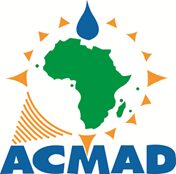Ecosystem-based Adaptation to Future Heat Extremes in African Cities (e-SAFARI)
Project Information
Niamey, the capital of Niger, is increasingly exposed to extreme heat, with temperatures already surpassing 45 °C and expected to intensify in the coming decades. Combined with rapid population growth, this places enormous strain on health, labour productivity, and energy demand. Marginalised communities, who make up much of Niamey’s population and live in informal settlements, are most affected. These communities endure poor housing that overheats, a near-total absence of cooling green infrastructure, and limited access to healthcare. Wealthier areas, by contrast, benefit from tree cover and private cooling, entrenching social inequities. While annual tree-planting campaigns exist, resources to conserve and expand urban greenery remain scarce. Ecosystem-based adaptation (EbA) is still at an early stage in Niger’s climate policies, providing a clear entry point for future development.
The Ecosystem-based Adaptation to Future Heat Extremes in African Cities (e-SAFARI) project responds to this urgent challenge by generating robust, evidence-based knowledge on the cooling potential of urban trees and presenting it in accessible ways to inform decisions. High-resolution satellite-based tree mapping, advanced micro-climate modelling, and innovative community-based monitoring will result in detailed city-wide maps and an interactive dashboard, designed for policy makers, planners, civil society, and citizens. The project places particular emphasis on marginalised groups and youth. Outreach in under-provisioned neighbourhoods will help communities articulate their needs, while school climate clubs and citizen science campaigns will equip young people to act as future climate leaders.
By supporting national policy development, municipal planning, and community awareness, e-SAFARI will strengthen climate resilience, reduce health risks, and promote more just and inclusive African cities.
Key Metrics
Implemented By:
Vlaamse Instelling voor Technologisch Onderzoek NV (VITO)

In collaboration with project partners Jeunes Volontaires pour l’Environment (JVE) | JVE Niger and the African Centre of Meteorological Application for Development (ACMAD)


